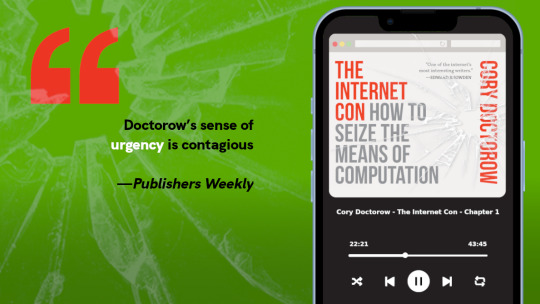#five hundred bucks
Text
the urge to buy a plot of land and a dilapidated house in bulgaria for five grand and just fucking. going off the grid. is once again rising
#i saw a video years ago where people commented on bulgarian real estate ads and no shit. there are places over there that go for like#five hundred bucks#and like for all I know there's something darker to it all. but idk for sure and frankly everything is pretty dark rn
0 notes
Text
Sunday Songs Volume 9 is here!
Your favorite Sunday playlist is back with some great songs for you to listen to!

To listen, click here.
Make sure to follow us on ~Spotify~
#sunday songs#sunday songs vol 9#playlist#five hundred bucks#creeks#anthony green#joyce manor#wallows#citizen#tim kasher#into it over it#worriers#kevin devine#self defense family#jawbreaker#music mag#blog#stay pleasant#pleasant worldwide#spotify#playlists#music playlists#pleasant mag#indie music#hardcore music#music blog#music news
0 notes
Text


play ball flats by double standard nyc
#think these are dupes of kiko kostadinov’s lella hybrid shoes except a hundred bucks instead of five hundred pounds#either way so cute and i want this kind of flat so badly#fashion#uploads
77 notes
·
View notes
Text
guys
guys i think yall went a little too far
WE FLEW A LITTLE TOO CLOSE TO THE SUN DUDES ASDHKBAD

the charms are still up (for now?) and ill def still be selling the stickers, i just needdd to figure out the safest workaround so i dont over-crime myself into a lawsuit LMAO
#WHOOPSIES AHSDAVKSDAD#i thought id be fine bc i thought itd only be a couple hundred bucks in orders but NO????? you guys blasted my inbox into space/aff#tmnt brainrot so hard i spedran a copyright infringement in five days dhfbhdf#khaotic#rottmnt merch
90 notes
·
View notes
Text
Not to be all "capitalism is a disease look how it ruined this children's book" but the knowledge that the special edition journal three was written with the express intent of like, parents helping their kids read the blacklight pages and creating a fun experience for kids only for the price of the books to end up being $100 US because the blacklight ink/glue/thing was expensive and disney publishing could only sink enough money into it to print a couple thousand (originally 5,000 which was later doubled to 10,000) is really getting to me and yeah there are a million other/more important things wrong with capitalism but like. A book that was written for children wound up being read by exactly zero children because there were only 10,000 printed and they cost a hundred bucks. And by the time any of those adults have kids old enough to even watch the dang show it's not going to be relevant and there's no guarantee that they'll like it and there's no guarantee that there will even be a legal way to watch it in the first place and it just-- sucks. The whole thing sucks.
#when I first got the blacklight edition I thought the last page was#a little cheesy#now I just think about all the kids who never got to put their hand on the journal#I have a niece and she's five#she's turning six in a month#she's barely old enough to start liking cartoons that aren't peppa pig#and then there's the added ''I paid a hundred bucks for this thing I don't really want to let a ten year old in my life handle it''
16 notes
·
View notes
Text
the best part of being richer than god and making movies for a living (sort of) is that when i need an audience i can just buy a street off, fill it with actors, and have my public display in private
#im in new york i can find fifty dirt cheap actors who would do anything for five hundred bucks#25k for a public execution that i dont have to hear about from my pr department is pennies to the dollar to me#working off my restless energy by having my makeup department load me up with fake blood packets#getting a tube shoved down my throat that will let me pulse blood from my mouth more organically#there are different ways to do this but im a fan of the tube
3 notes
·
View notes
Text
most people at their school think of the stabdad kids as some weirdos and then aradia offhandedly mentions she got like 200 bucks from her papa at christmas
2 notes
·
View notes
Text
there's currently a fucking squirrel in my wall (again. i think it's the spawn of scratchy the first) bc i live in an older house and it literally burrowed into the siding. i've been periodically knocking to get the little shit to stop burrowing bc i do NOT want a squirrel in my room. i've been laying here for abt five mins since last getting up to knock on the wall, and i swear to everything holy i just heard the fucker knock back

#len speaks#i think we're gonna have to break down and punch a hole in my wall to dig the little shit out. we can't get in from the outside so i'm just#gonna have to make peace with the thought of having a hole in my wall til my uncle can patch it up 😮💨#also i know squirrels are stupid as fuck so its not like i'm afraid of the knocking or believe its actually mocking me but it IS annoying#the gall of that little tree rat is grating on my nerves. at least scractchy the first knew when to shut the fuck up and stop!!!#and if youre wondering why we didn't trap it its bc the guy who offered was only gonna trap 1 of them for FIVE HUNDRED BUCKS.#city slickers are fucking INSANE. half a grand for one goddamn squirrel!!!!#sorry forr oversharing abt my tree rat infestation but i can't fall back asleep and i'm genuinely pissed that they came back
4 notes
·
View notes
Text
Najimi, running up to Yadano: Do you want to make five bucks?
Yadano: How?
Najimi: I need you to take the blame.
Teacher, from a distance: Oh my God!
Yadano: What did you do?
Najimi: I can't tell you. Yes or no? No questions asked.
Teacher: OH MY GOD!
Yadano: Make it ten and you've got yourself a deal.
(Source: Tumblr?)
#'five hundred yen' doesn't have the same ring as 'five bucks'#I'm sure the Japanese have some way around this#but I don't know what it is#osana najimi#yadano makeru#komi san can't communicate#incorrect quotes#incorrect komi quotes#i'm pretty sure this one was created specifically to be an incorrect quote but i don't have any proof of that so i'll just put 'tumblr'
8 notes
·
View notes
Text
i want a new tattoo so bad
#cro zone#hit me up if you have a spare five hundred dollars and want to see my ass or my 3d modeling skills#those r my two skillsets i value at 500 bucks#ironically the two things i dont post online
3 notes
·
View notes
Text

LOOK at this shirt i found at a secondhand store today
#i got it obviously#i went with a friend almost reluctantly bc i hate clothes shopping but#as soon as i walked in like i’m talking within thirty seconds#i found…… THE item i’ve been dreaming about buying myself like first on the list of Special Things to look for#once i have a job and make big girl money#a real leather moto jacket in my size that fits PERFECTLY#for fifty bucks#and i had to get it of course#i looked it up online and it’s designer and retails for five hundred dollars#innnncredible#i also got a belt with a heart shaped buckle and an iridescent vinyl fanny pack#am i doing fashion
5 notes
·
View notes
Text
having questions about grown up things truly can make you feel like the dumbest person alive
#no matter how i phrase it not a single answer will come up on google#is the answer so obvious no one has ever asked before#the problem is that there’s a minimum amount for international transactions on commbank#i want to know if it’s possible to make that minimum not five hundred fucking dollars#i just want to send my friend like twenty bucks to buy my best friend flowers or something#im already paying a $22aud fee either way why does it make a difference to them#growing up#commbank#text post
0 notes
Text
there should be a charitable foundation dedicated to the very good cause of me purchasing stuff that i want
#once again gazing longingly at snowdrops with $30 shipping from the uk#they're prettyyyy and they dont have those varieties here#also just the snowdrops themselves without the shipping is crazy expensive sometimes#like $30+ for one bulb lol#i went njts and spent like a hundred dollars on like four so thats it for the year#but im slowly building a collection#this seems insane and frivolous i know but im trying to get the special blooming time ones#to try to get flowers during the most bleak no snow no flowers times of year lol#and also christmas :)#anyway i made a post like this around this time last year abt orchard trees and i got five for 10 bucks each#which is crazy cheap#they were only little but they'll grow and they were grafted already and everything#anywayyyy#sorry for all the posting im spinning with relief abt my prognosis lol#this has been a shitpost
1 note
·
View note
Text
I am. I hell.
#might stay home again today#I don't want to because it'll screw over my dad (bc he'll be alone there today) and also I'll lose almost a hundred bucks#but also I feel the same as I did last night when I went to sleep and that was the worst it's been#took me hours to fall asleep because I couldn't breathe every five minutes :/#anyway my throat is completely fucked and I'm not sure how I'm still coughing#meant to say in hell but I'm just gonna leave it#still TALKING god. apparently my brain also doesn't work too good rn
0 notes
Text
Fuck the healthcare industry
Fuck insurance companies
And, last but not least,
ACAB
#my uninsured brother has been sporting a horrible intermittent 104 degree fever for the past 2.5 weeks#he had covid which became a uti#and the fevers literally been fucking with his head#and of course he cant afford the hospital and all the urgent care clinics have been useless for the most part#we literally went to a university clinic because they offered discounts for uninsured#after the discounts applied it came out to 500 bucks. FIVE. HUNDRED#were lucky we have jobs and have homes and can KIND OF afford it!!#if it had been anyone else he would have been FUCKED#on top of this#he finally started feeling better today#decided to take a walk and subsequently got attacked by a pack of 8 dogs#luckily hes not too injured#but some bites on his legs were puncture wounds#and guess how much a rabies shot is?#1200-6500 dollars!!!!#WHAT THE FUCK#so if some random guy gets bitten by a rabid racoon unless theyre insured they cant fucking get the shot#unless theyre able yo drop that money#which chances are most people who dont have health insurance wont be able to do!!!!#sorry im judt SO tired#we called the police and they basically told us they couldnt do anything#then the cop FUCKIN MADE FUN OF MY BROTHER#made us wait 1 hour outside for him to even show up then he acts like a jackass to our faces#what. the fuck.#all cops are bastards#acab#fuck the us healthcare system#fuck the us government#fuck insurance companies#if i wasnt radicalized before this entire experience definitely did
0 notes
Text
Paying consumer debts is basically optional in the United States

The vast majority of America's debt collection targets $500-2,000 credit card debts. It is a filthy business, operated by lawless firms who hire unskilled workers drawn from the same economic background as their targets, who routinely and grotesquely flout the law, but only when it comes to the people with the least ability to pay.
America has fairly robust laws to protect debtors from sleazy debt-collection practices, notably the Fair Debt Collection Practices Act (FDCPA), which has been on the books since 1978. The FDCPA puts strict limits on the conduct of debt collectors, and offers real remedies to debtors when they are abused.
But for FDPCA provisions to be honored, they must be understood. The people who collect these debts are almost entirely untrained. The people they collected the debts from are likewise in the dark. The only specialized expertise debt-collection firms concern themselves with are a series of gotcha tricks and semi-automated legal shenanigans that let them take money they don't deserve from people who can't afford to pay it.
There's no better person to explain this dynamic than Patrick McKenzie, a finance and technology expert whose Bits About Money newsletter is absolutely essential reading. No one breaks down the internal operations of the finance sector like McKenzie. His latest edition, "Credit card debt collection," is a fantastic read:
https://www.bitsaboutmoney.com/archive/the-waste-stream-of-consumer-finance/
McKenzie describes how a debt collector who mistook him for a different PJ McKenzie and tried to shake him down for a couple hundred bucks, and how this launched him into a life as a volunteer advocate for debtors who were less equipped to defend themselves from collectors than he was.
McKenzie's conclusion is that "paying consumer debts is basically optional in the United States." If you stand on your rights (which requires that you know your rights), then you will quickly discover that debt collectors don't have – and can't get – the documentation needed to collect on whatever debts they think you owe (even if you really owe them).
The credit card companies are fully aware of this, and bank (literally) on the fact that "the vast majority of consumers, including those with the socioeconomic wherewithal to walk away from their debts, feel themselves morally bound and pay as agreed."
If you find yourself on the business end of a debt collector's harassment campaign, you can generally make it end simply by "carefully sending a series of letters invoking [your] rights under the FDCPA." The debt collector who receives these letters will have bought your debt at five cents on the dollar, and will simply write it off.
By contrast, the mere act of paying anything marks you out as substantially more likely to pay than nearly everyone else on their hit-list. Paying anything doesn't trigger forbearance, it invites a flood of harassing calls and letters, because you've demonstrated that you can be coerced into paying.
But while learning FDCPA rules isn't overly difficult, it's also beyond the wherewithal of the most distressed debtors (and people falsely accused of being debtors). McKenzie recounts that many of the people he helped were living under chaotic circumstances that put seemingly simple things "like writing letters and counting to 30 days" beyond their needs.
This means that the people best able to defend themselves against illegal shakedowns are less likely to be targeted. Instead, debt collectors husband their resources so they can use them "to do abusive and frequently illegal shakedowns of the people the legislation was meant to benefit."
Here's how this debt market works. If you become delinquent in meeting your credit card payments ("delinquent" has a flexible meaning that varies with each issuer), then your debt will be sold to a collector. It is packaged in part of a large spreadsheet – a CSV file – and likely sold to one of 10 large firms that control 75% of the industry.
The "mom and pops" who have the other quarter of the industry might also get your debt, but it's more likely that they'll buy it as a kind of tailings from one of the big guys, who package up the debts they couldn't collect on and sell them at even deeper discounts.
The people who make the calls are often barely better off than the people they're calling. They're minimally trained and required to work at a breakneck pace. Employee turnover is 75-100% annually: imagine the worst call center job in the world, and then make it worse, and make "success" into a moral injury, and you've got the debt-collector rank-and-file.
To improve the yield on this awful process, debt collection companies start by purging these spreadsheets of likely duds: dead people, people with very low credit-scores, and people who appear on a list of debtors who know their rights and are likely to stand on them (that's right, merely insisting on your rights can ensure that the entire debt-collection industry leaves you alone, forever).
The FDPCA gives you rights: for example, you have the right to verify the debt and see the contract you signed when you took it on. The debt collector who calls you almost certainly does not have that contract and can't get it. Your original lender might, but they stopped caring about your debt the minute they sold it to a debt-collector. Their own IT systems are baling-wire-and-spit Rube Goldberg machines that glue together the wheezing computers of all the companies they've bought over the last 25 years. Retrieving your paperwork is a nontrivial task, and the lender doesn't have any reason to perform it.
Debt collectors are bottom feeders. They are buying delinquent debts at 5 cents on the dollar and hoping to recover 8 percent of them; at 7 percent, they're losing money. They aren't "large, nationally scaled, hypercompetent operators" – they're shoestring operations that can only be viable if they hire unskilled workers and fail to train them.
They are subject to automatic damages for illegal behavior, but they still break the law all the time. As McKenzie writes, a debt collector will "commit three federal torts in a few minutes of talking to a debtor then follow up with a confirmation of the same in writing." A statement like "if you don’t pay me I will sue you and then Immigration will take notice of that and yank your green card" makes the requisite three violations: a false threat of legal action, a false statement of affiliation with a federal agency, and "a false alleged consequence for debt nonpayment not provided for in law."
If you know this, you can likely end the process right there. If you don't, buckle in. The one area that debt collectors invest heavily in is the automation that allows them to engage in high-intensity harassment. They use "predictive dialers" to make multiple calls at once, only connecting the collector to the calls that pick up. They will call you repeatedly. They'll call your family, something they're legally prohibited from doing except to get your contact info, but they'll do it anyway, betting that you'll scrape up $250 to keep them from harassing your mother.
These dialing systems are far better organized than any of the company's record keeping about what you owe. A company may sell your debt on and fail to keep track of it, with the effect that multiple collectors will call you about the same debt, and even paying off one of them will not stop the other.
Talking to these people is a bad idea, because the one area where collectors get sophisticated training is in emptying your bank account. If you consent to a "payment plan," they will use your account and routing info to start whacking your bank account, and your bank will let them do it, because the one part of your conversation they reliably record is this payment plan rigamarole. Sending a check won't help – they'll use the account info on the front of your check to undertake "demand debits" from your account, and backstop it with that recorded call.
Any agreement on your part to get on a payment plan transforms the old, low-value debt you incurred with your credit card into a brand new, high value debt that you owe to the bill collector. There's a good chance they'll sell this debt to another collector and take the lump sum – and then the new collector will commence a fresh round of harassment.
McKenzie says you should never talk to a debt collector. Make them put everything in writing. They are almost certain to lie to you and violate your rights, and a written record will help you prove it later. What's more, debt collection agencies just don't have the capacity or competence to engage in written correspondence. Tell them to put it in writing and there's a good chance they'll just give up and move on, hunting softer targets.
One other thing debt collectors due is robo-sue their targets, bulk-filing boilerplate suits against debtors, real and imaginary. If you don't show up for court (which is what usually happens), they'll get a default judgment, and with it, the legal right to raid your bank account and your paycheck. That, in turn, is an asset that, once again, the debt collector can sell to an even scummier bottom-feeder, pocketing a lump sum.
McKenzie doesn't know what will fix this. But Michael Hudson, a renowned scholar of the debt practices of antiquity, has some ideas. Hudson has written eloquently and persuasively about the longstanding practice of jubilee, in which all debts were periodically wiped clean (say, whenever a new king took the throne, or once per generation):
https://pluralistic.net/2020/03/24/grandparents-optional-party/#jubilee
Hudson's core maxim is that "debt's that can't be paid won't be paid." The productive economy will have need for credit to secure the inputs to their processes. Farmers need to borrow every year for labor, seed and fertilizer. If all goes according to plan, the producer pays off the lender after the production is done and the goods are sold.
But even the most competent producer will eventually find themselves unable to pay. The best-prepared farmer can't save every harvest from blight, hailstorms or fire. When the producer can't pay the creditor, they go a little deeper into debt. That debt accumulates, getting worse with interest and with each bad beat.
Run this process long enough and the entire productive economy will be captive to lenders, who will be able to direct production for follies and fripperies. Farmers stop producing the food the people need so they can devote their land to ornamental flowers for creditors' tables. Left to themselves, credit markets produce hereditary castes of lenders and debtors, with lenders exercising ever-more power over debtors.
This is socially destabilizing; you can feel it in McKenzie's eloquent, barely controlled rage at the hopeless structural knot that produces the abusive and predatory debt industry. Hudson's claim is that the rulers of antiquity knew this – and that we forgot it. Jubilee was key to producing long term political stability. Take away Jubilee and civilizations collapse:
https://pluralistic.net/2022/07/08/jubilant/#construire-des-passerelles
Debts that can't be paid won't be paid. Debt collectors know this. It's irrefutable. The point of debt markets isn't to ensure that debts are discharged – it's to ensure that every penny the hereditary debtor class has is transferred to the creditor class, at the hands of their fellow debtors.
In her 2021 Paris Review article "America's Dead Souls," Molly McGhee gives a haunting, wrenching account of the debts her parents incurred and the harassment they endured:
https://www.theparisreview.org/blog/2021/05/17/americas-dead-souls/
After I published on it, many readers wrote in disbelief, insisting that the debt collection practices McGhee described were illegal:
https://pluralistic.net/2021/05/19/zombie-debt/#damnation
And they are illegal. But debt collection is a trade founded on lawlessness, and its core competence is to identify and target people who can't invoke the law in their own defense.

Going to Defcon this weekend? I’m giving a keynote, “An Audacious Plan to Halt the Internet’s Enshittification and Throw it Into Reverse,” today (Aug 12) at 12:30pm, followed by a book signing at the No Starch Press booth at 2:30pm!
https://info.defcon.org/event/?id=50826


I’m kickstarting the audiobook for “The Internet Con: How To Seize the Means of Computation,” a Big Tech disassembly manual to disenshittify the web and bring back the old, good internet. It’s a DRM-free book, which means Audible won’t carry it, so this crowdfunder is essential. Back now to get the audio, Verso hardcover and ebook:
http://seizethemeansofcomputation.org

If you’d like an essay-formatted version of this post to read or share, here’s a link to it on pluralistic.net, my surveillance-free, ad-free, tracker-free blog:
https://pluralistic.net/2023/08/12/do-not-pay/#fair-debt-collection-practices-act
#pluralistic#jubilee#debts that cant be paid wont be paid#Patrick McKenzie#patio11#bits about money#debt#debt collection#do not pay#bottom feeders#Fair Debt Collection Practices Act#fdcpa#finance#armbreakers
11K notes
·
View notes